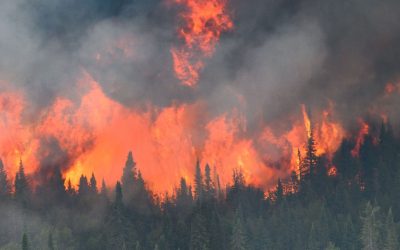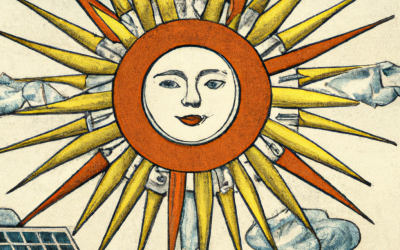
GLOBAL warming isn’t a threat to Canada’s farm belt because scientists who say the Earth is warming are wrong, says former University of Manitoba climatologist Tim Ball.
Ball delivered his controversial remarks yesterday at a lunch of the Frontier Centre for Public Policy, a Winnipeg conservative think-tank, at the Winnipeg Convention Centre.
“The focus (of public policy) is on warming but that’s the stupidest thing I’ve heard,” said Ball, who is now a conservative environmental consultant living in Victoria, B.C. “The evidence is temperatures are cooling and that’s disastrous for western Canada.”
Evidence suggests the planet is cooling off as part of a natural cycle, Ball said.
Such cycles repeat themselves every several thousand years as the Earth’s tilt and orbit change around the sun.
The changes bring cooler temperatures and wetter weather to the Prairies, which fluctuate anyway between drought and wet periods. Together those two factors represent a grave threat to Canadian agriculture, Ball said.
Greenhouse gas emissions, which are blamed for global warming, are such a minor factor on a global scale, it makes no practical difference to the Earth or its climate, Ball argued.
Ball said the Kyoto Protocol to cut greenhouse gas emissions amounts to a trade trick pulled by Europe to force profitable North American corporations to add millions to the cost of production with expensive environmental modifications.
Most climatologists disagree vehemently with Ball’s view of climate change. But he’s not alone in his views.
Former Doer cabinet minister MaryAnn Mihychuk, who attended the lunch along with about 100 other people, stopped short of calling global warming a hoax.
But she noted she was the province’s trade minister at the time Canada signed on the Kyoto Protocol, and she thinks the science it is based on is dubious. “Obviously I have questions about Kyoto. Where’s the evidence? Are we basing all of these dramatic economic requirements on sound science or a fear factor,” Mihychuk said.
“This is the only place where you will hear a discussion like this,” observed the centre’s president, commentator Peter Holle, after the hour-long speech wrapped up.
For Holle, Ball’s picture of climate change has huge political implications because if Ball is right, Ottawa is wrong.
“The world of public policy is completely disconnected from reality,” Holle said.
The Kyoto Accord is an international environment agreement signed by many western countries. Canada is a signatory. The United States is not.
Drafted in 1997 by the United Nations, Kyoto calls on western countries to reduce carbon dioxide and greenhouse gas emissions as a way to stem global warming.
Meeting the targets will cost industrialized countries hundreds of millions of dollars in industrial modifications.


